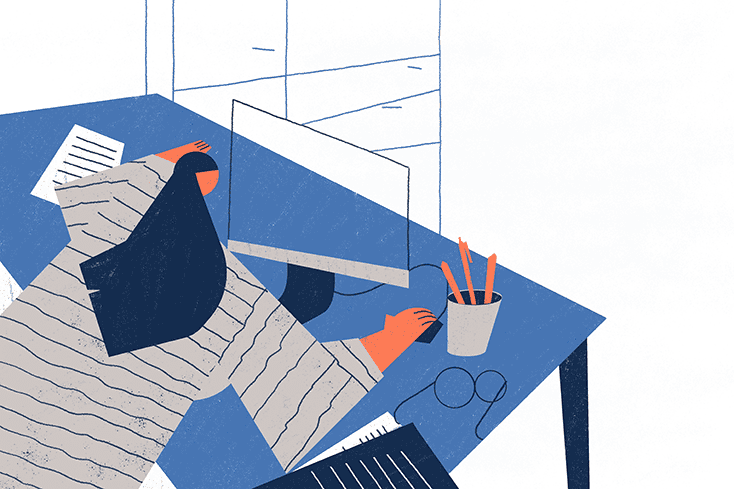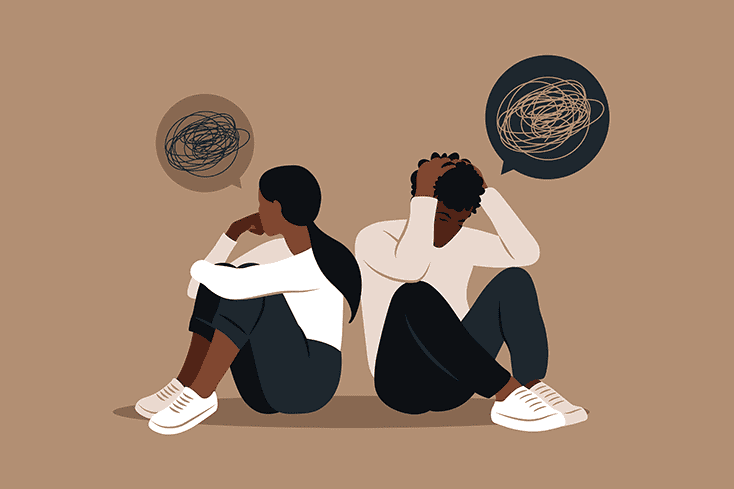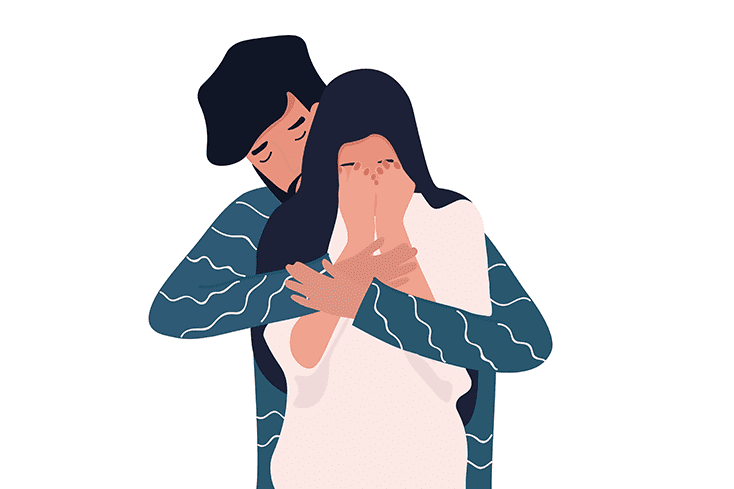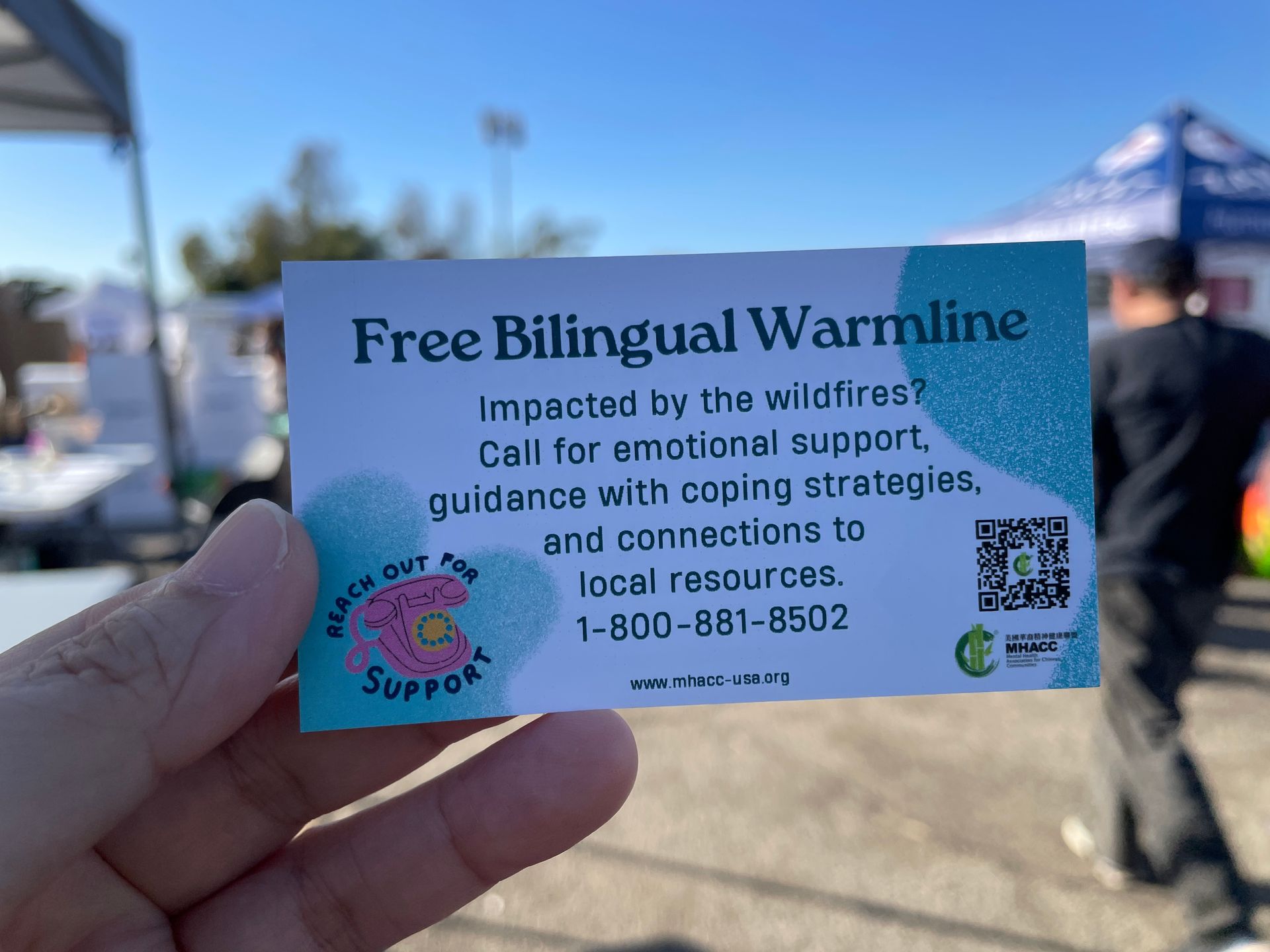我的診斷遮蔽經驗 | My Experience with Diagnostic Overshadowing
MHACC 雙語部落格 Bilingual Blog
Scroll down for the English Version ⬇️
作者:Andrea Rosenhaft LCSW-R
原始來源:https://www.nami.org/medical/my-experience-with-diagnostic-overshadowing/
2021年10月13日
當你有心理疾病時,你很可能會遭遇某種形式的歧視,從社會污名與排斥到法律保護的缺乏。所幸,隨著心理健康社群提高意識並挑戰污名,大眾討論逐漸開始關注心理疾病患者所經歷的歧視。
然而,有一種形式的歧視卻鮮少被提及:一種被稱為「診斷遮蔽」的醫療歧視。
專家將診斷遮蔽定義為「將身體症狀誤歸因於心理疾病的過程」。雖然研究與患者的親身經歷都顯示心理與生理健康之間確實存在關聯,但將兩者視為必然相連,並將身體症狀一律視為心因性的做法,卻是相當危險的。
研究指出,心理疾病患者的壽命較短,且其罹患其他身體疾病的比率也遠高於一般人。對於我們這些有心理健康問題的人來說,診斷遮蔽被認為是造成這一現象的原因之一,並不令人意外。
我自己在尋求醫療照護的過程中,有多項心理疾病診斷,包括邊緣性人格障礙(BPD),這也加深了我對診斷遮蔽所帶來負面後果的體會。僅僅是在我的病歷中列出使用精神藥物,就足以引發醫師對我作為病患可信度的懷疑。
我第一次的診斷遮蔽經驗
2015年,我開始出現壓迫性的胸痛發作。在急診室的醫生排除心臟病發作的可能後,我轉而尋求我主治醫師所屬的醫療體系中一位心臟科醫師的診治。
我才剛進診間五分鐘,他就告訴我胸痛是因為焦慮所致。我含淚走出診所。我知道這並不是焦慮造成的;我曾經歷過焦慮和嚴重恐慌發作,但這次的疼痛遠比以往更劇烈。
我下定決心要尋求第二意見,於是找到了紐約市一家大型醫院旗下女性醫療中心的心臟科醫師。她問了許多前一位醫師根本沒問的問題。她注意到我已超過40歲,並且曾被診斷為偏頭痛與雷諾氏症。
這位醫師最終診斷我為變異型心絞痛(Prinzmetal’s Angina),這是一種不常見的心臟血流減少情況。她開立了鈣通道阻斷劑,發作的頻率與嚴重程度大幅下降。
我打電話告訴主治醫師我已尋求第二意見,並說明這不是焦慮,而是變異型心絞痛所致。她只是說:「謝謝妳告訴我。」
我不知道自己當時期望她說什麼,但我對她的反應感到失望。
第二次經歷
2017年,我開始經常感到噁心並出現胃痛。一位腸胃科醫師告訴我,我得了「功能性腹痛症候群」(FAPS),而我只需要「學著與之共處」。
當我回家查詢這個病症時,發現一篇文章將此症狀描述為「身心症」(somatization disorder)。換句話說,我的心理與情緒狀態導致了我經歷的疼痛。這讓我感到憤怒,同時也對被醫療專業忽視感到無奈。
我忍受了數月的疼痛與噁心,體重也開始不自覺地下降,這進而觸發了我的厭食症。我自2012年以來未曾限制飲食,但這次我開始享受體重下降的感覺。
最終,我又回到那間曾帶給我正面經驗的女性醫療中心,找了一位女腸胃科醫師。她認真看待我的症狀,安排了多項檢查,包括胃鏡檢查,但都未發現異常。我體重持續下降,在短短幾個月內減輕了將近20磅。最後,她安排我做了呼氣測試,結果顯示我患有小腸細菌過度生長症(SIBO)。
我將結果傳訊息告訴最初那位將我的症狀視為心因性的醫師,他回覆說:「謝謝你讓我知道。」
我吞下心中的怒火,心想如果他一開始就認真看待我的症狀,也許整個折磨的過程都可以避免。我花了一年多才恢復體重,花更長的時間處理這次被觸發的飲食障礙所造成的情緒創傷。
我對未來仍抱有希望
我仍持續服用精神疾病相關藥物(兩種抗憂鬱劑與一種第二代抗精神病藥,作為輔助用藥)。然而,我有時會想從藥物清單中略去這些藥,因為我擔心告知用藥情況會影響醫師對我的看法。我幾乎從不提自己有 BPD,因為那個診斷伴隨太多污名。
雖然這樣的經歷令人沮喪,但我仍抱持希望。最終,我遇到幾位有同理心的醫師,他們將我視為完整的人與病人,並能有效地為我治療。我現在持續看診的一位頭痛專科醫師,負責處理我嚴重且慢性的偏頭痛。她既關懷病人又非常聰明(她同時擁有醫學博士與哲學博士學位),並擁有神經科與精神科的雙重專科認證。
在看診約五年後,我終於感到足夠安心,告訴她除了厭食症與憂鬱症,我還被診斷出 BPD。
她毫不猶豫地回應:「妳很棒。」
Andrea Rosenhaft 是一名執業於紐約市地區的臨床社工。她已從厭食症、重度憂鬱症與邊緣性人格障礙(BPD)中康復,並經常撰寫有關心理健康與復原的部落格文章。Andrea 是心理健康倡議與宣導組織 BWellBStrong 的創辦人,該組織專注於 BPD、飲食障礙與重度憂鬱症的相關議題。她與她的救援犬 Shelby 一起住在紐約州西徹斯特郡。
Written by: Andrea Rosenhaft LCSW-R
Original Source Here: https://www.nami.org/medical/my-experience-with-diagnostic-overshadowing/
October 13, 2021
When you have mental illness, you’re more than likely to encounter some form of discrimination, from social stigma and exclusion to a lack of legal protections. Thankfully, as the mental health community raises awareness and challenges stigma, the larger conversation is beginning to address the discrimination that people with mental illness experience.
There is one form of discrimination, however, that rarely makes the conversation: A form of medical discrimination called “diagnostic overshadowing.”
Diagnostic overshadowing, as defined by the experts, is a “process by which physical symptoms are misattributed to mental illness.” While research and personal accounts from patients suggest that there is a connection between mental and physical health, the assumption that two are always related, and that physical symptoms must be psychosomatic, is a dangerous approach.
Research shows that people with mental illness die prematurely and have significantly higher medical co-morbidity, as compared to the general population. Unsurprisingly to those of us with mental health conditions, diagnostic overshadowing is believed to be one of the factors contributing to this phenomenon.
My own experience seeking medical care with multiple mental illness diagnoses, including borderline personality disorder (BPD), has underscored the negative consequences of diagnostic overshadowing. Simply having psychotropic medications listed on my medical chart is enough to trigger doctors’ suspicion about my credibility as a patient.
My First Experience with Diagnostic Overshadowing
In 2015, I began having episodes of crushing chest pain. After emergency room doctors ruled out a heart attack, I followed up with a cardiologist from the medical group where my primary care physician worked.
I had only been in the exam room for five minutes before he told me that my chest pain was due to anxiety. I walked out of his office in tears. I knew this pain was not anxiety; I’d experienced anxiety and debilitating panic attacks before, and this pain was much worse.
I vowed to get a second opinion, so I found a cardiologist who oversaw a women’s medical center associated with a major hospital in New York City. She asked questions the other cardiologist didn’t bother to ask. She was interested in the fact that I was over 40 years old and that I had been diagnosed with both migraines and Raynaud’s Syndrome.
This doctor ultimately diagnosed me with Prinzmetal’s Angina, an uncommon form of the decreased blood flow to the heart. She prescribed me a calcium channel blocker, and the frequency and severity of the attacks dropped significantly.
I called my primary care physician to inform her I’d sought a second opinion for my chest pain. I told her that the chest pain was not due to anxiety, but rather a result of Prinzmetal’s Angina. She said simply, “Thank you for letting me know.”
I don’t know what I expected, but I felt disappointed by her response.
My Second Experience
In 2017, I began feeling frequently nauseated and experiencing stomach pain. A gastroenterologist told me I had functional abdominal pain syndrome (FAPS), and I would simply have to “learn to live with it.”
When I went home and googled this disorder, I came across a paper on the syndrome which described the condition as a “somatization disorder.” In other words, my mental and emotional state was leading to the pain I was experiencing. I was simultaneously furious about it and resigned to being dismissed by medical professionals.
I lived with the pain and nausea for months, and I began unintentionally losing weight, which then triggered my anorexia. I hadn’t restricted my food intake since 2012, and I started to enjoy the feeling of seeing the numbers on the scale drop when I weighed myself.
Eventually, I sought a female gastroenterologist at the women’s medical center where I’d had success with the cardiologist. She took me seriously, and put me through a series of tests, including an endoscopy, but they were all negative. I continued to lose weight and dropped almost 20 pounds in just a few months. Finally, the GI administered a breath test and it determined I had small intestinal bacterial overgrowth.
I sent a message to the doctor who originally dismissed my symptoms as psychosomatic, and he wrote back, “Thanks for letting me know.”
I swallowed my anger, convinced that this ordeal could have been avoided if he had taken me seriously when I first saw him. It took me over a year to gain the weight back and even longer to confront the emotional toll of having my eating disorder triggered.
I Still Have Hope for the Future
I still take medications for my mental illness diagnosis (two antidepressants and a second-generation antipsychotic, that works as an adjunct to my antidepressants). However, I sometimes find myself tempted to leave them off the list of medications I provide to practitioners. I worry about how disclosing my medication regimen may influence the way a doctor views me. I almost never reveal I have BPD because of the stigma associated with that diagnosis.
While this experience is frustrating, there is hope. Eventually, I found compassionate doctors who saw me as a whole person and patient — doctors who could treat me effectively. I currently see a headache specialist for severe and chronic migraines. She is caring and smart (she has a Ph.D. as well as an M.D.) and she’s board certified in neurology and psychiatry.
After seeing her for about five years, I felt comfortable enough to reveal that, in addition to anorexia and depression, I’d also been diagnosed with BPD.
She didn’t hesitate. “You are awesome.”
Andrea Rosenhaft is a licensed clinical social worker in the New York City area. She is recovered from anorexia, major depression and borderline personality disorder (BPD), and she frequently blogs on the topic of mental health and recovery. Andrea is the founder of a mental health advocacy and awareness organization called
BWellBStrong, which focuses its efforts on BPD, eating disorders and major depressive disorder. She lives in Westchester, N.Y., with her rescue dog, Shelby.
Sign up for our Newsletter
訂閱每月簡訊獲得最新資訊
Contact Us












